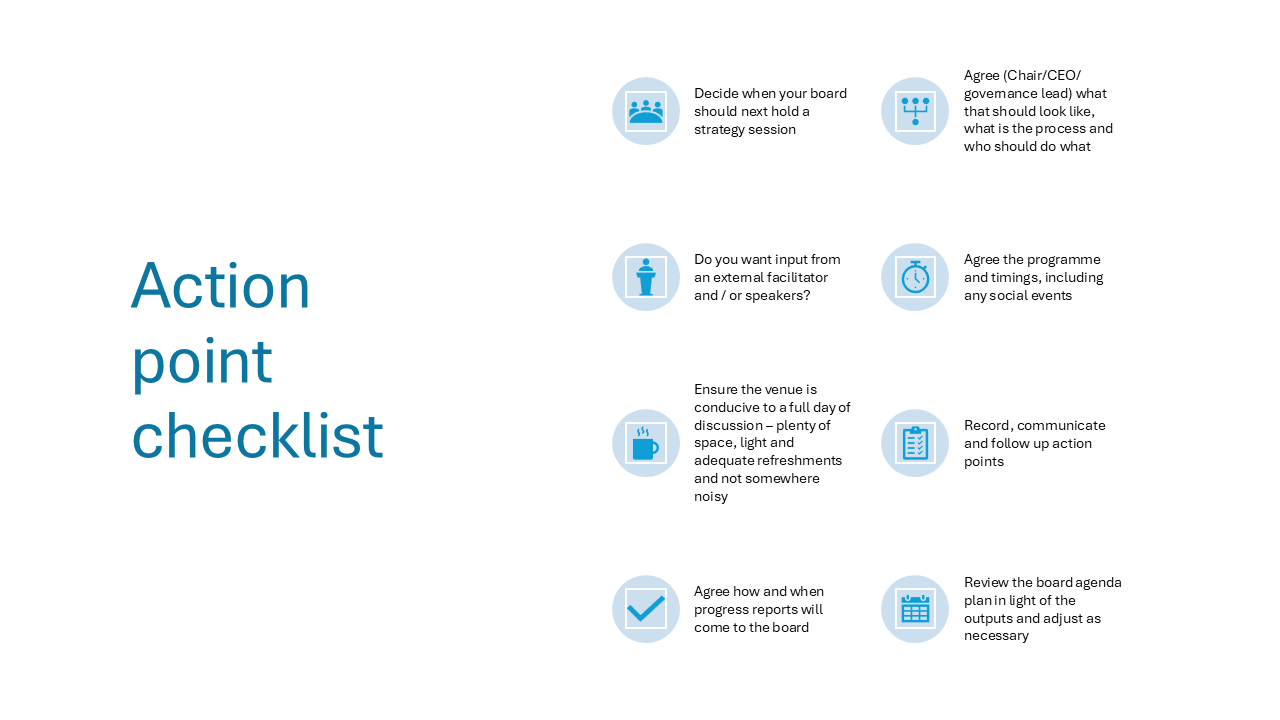Too much information!

If we are being honest, whatever our role around the board table, whether director or governance professional, the thought of a set of board papers is unlikely to fill us with joy.
The executive team often don’t like to write them, they can be seen as a chore. For the non executive, receiving a massive set of papers days before a meeting can feel really daunting. For the company secretary, caught between the two camps, the whole process can simply be a very stressful and thankless task.
So let’s explore these a bit more, unpack the issues and see what might be done to make life easier for everyone.
The executives

Issues
For the exec team below board level, the board can seem a bit distant and irrelevant to their day to day operations. They may see the board as an obstacle to be overcome in order for them to get on with running the business. They may have to write papers for internal committees – such as an Exco. Even though the board is a different audience, the temptation will be to change the meeting title and date and send the same paper to the board. Sometimes this will work but many times it won’t be ideal.
Tips
Having a brief guidance note for writing board (and board committee) papers which includes information about the function of the board and what it needs can give execs a better understanding of what is required and what to include in their paper to give the best chance of a positive outcome with board approval for their project. The executive directors (usually the CEO and CFO) can also encourage the rest of their team, although much of the effort may fall to the secretariat.
The non-executives

Issues
The main problems for NEDs are often the length of the board pack and a lack of time to read the papers properly and reflect on them. If papers are written initially for the executive team and not suitably edited for the NEDs they can be longer than necessary and contain a lot of jargon. The execs need to understand that although NEDs are committed to the company they are not full time and sending late papers means they will not necessarily have time to read them before the meeting. Even if they do read them, in order to make good decisions they will want time to reflect on major items and may wish to speak to board colleagues or clarify some points ahead of the meeting itself.
Tips
I came across one situation where updates were sent to the board via email on the morning of the meeting but this was when the directors were travelling to the meeting so was simply frustrating for all concerned. The guilty party, although meaning well, had simply not given enough thought to this. A better approach is to provide an oral update at the meeting and send any additional material on for information afterwards.
Ask the NEDs for feedback on the board (or committee) pack from time to time. This can be done by a short survey, perhaps two or three times a year or even at the end of a meeting if there is time. It should also be part of any board evaluation process.
The length of packs can be a real problem, so getting feedback on what is useful and needed (and what is not) can be a productive exercise. One example is if a share register analysis is included with the board pack, it can run to dozens of pages but most of it is not relevant for the board to see. It is much better to extract half a dozen pages of valuable information than send out the whole share register cut several different ways ‘just in case’ someone wants to read it. If they do, they can ask for it separately.
The cosec

Issues
The cosec is stuck in the middle. This means they hear grumbles from both sides and are the one struggling to get out a useful and informative pack on time. “Clear, timely and accurate” information is good governance practice – but it can often feel that everyone and everything are conspiring against you. If you get the papers in good time you can review them and make sure they are in a fit state to send to the board. If they are late, you will likely have to choose between vetting them or sending them out in good time.
Tips
Make sure the exec team understand what is needed, when and why. Have a process which you always follow and alert people in good time when you expect a contribution from them. An agenda planner should indicate what business is due to be considered at each meeting and there are a number of tools available to remind you (and your colleagues) about deadlines. If late papers continue to be a problem then one solution is for the Chair to refuse to allow a matter to be discussed if the paper is too late. This only needs to happen once or twice for it to have an effect. I have also seen getting papers ready on time included in a director’s objectives for the year. That’s how important it is!
Content
If you have a guidance note it is possible to set out some expectations and ground rules for good board papers. Examples are:
- Setting a word count or page limit
- Insisting on an executive summary and making it clear up front what the board is being asked to do
- If specific wording is required for a board resolution, this should be incorporated into the recommendation
- Dashboards can be a really useful way to present figures, such as highlights of the management accounts and performance against KPIs. The board will get used to seeing these and it will help them keep track of how the business develops over time
- Graphs and charts showing trends can be more informative and definitely more accessible than rows of figures in Excel spreadsheets
- Detailed analysis can be included in appendices
Delivery
With the wide variety of tech solutions now available and environmental concerns about careful use of resources, the days of endless photocopying and couriering out board packs should be behind us. However, if some directors still insist on using paper it is worth checking in that they have had proper training on whatever package you have – and if you are a director who is not sure of how to get the most of the board portal don’t be afraid to ask for a demo. Most of the portals offer more functionality than directors use. Board members may not wish to admit in public that they are not quite on top of the tech but some diplomatic enquiries and assistance can be beneficial for all concerned.
For companies which don’t use one of the popular packages the likely alternative is emailing papers out. This is not as secure but for smaller companies it is often the only realistic choice.
If this is what you do then sending a single pdf can be easier for people to manage than a whole lot of separate papers. However, if you do send the papers as individual files, make sure the filenames have numbers which correspond to the items on the board agenda. NEDs will not appreciate the extra time it will take to work out which paper belongs where – there is nothing more irksome!
Finally, try not to drip feed papers. Ideally everything should go out together a week before the meeting. If you cannot manage a week then at least include a weekend. If there is a genuine reason for a paper to be late don’t hold up the rest of the pack waiting for it. Another way round this is to send out the latest version and for the presenter to provide an oral update at the meeting or a short supplemental paper with any missing information can follow on from the main paper itself.
Conclusion
If you can crack the challenge of producing a great board pack which the execs feel enthusiastic about writing, the NEDs engage with because it is clear, informative and promotes discussion then the board will be more effective and the cosec can relax after a job well done! Good luck – and remember it is a team effort…

















